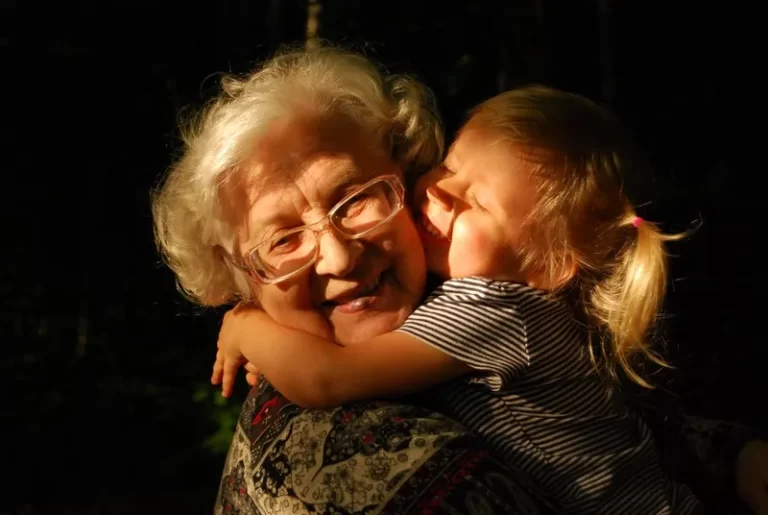Table of Contents
- The Functionalist Perspective: Talcott Parsons on Family Functions
- Feminist Critique: Ann Oakley on Gender Roles and the Family
- Marxist Perspective: Eli Zaretsky on the Family and Capitalism
- Applying Sociological Theories to Contemporary Family Dynamics
- Conclusion
Understanding the functions of the family is central to studying sociology, particularly when examining how families contribute to societal structures and individual well-being. This article explores key sociological studies that have shaped our understanding of family functions. We will delve into the works of Talcott Parsons, Ann Oakley, and Eli Zaretsky, each of whom offers distinct perspectives on the role of families in society. By applying these studies to real-world family dynamics, we can better appreciate the diversity and complexity of family life in contemporary Britain.
The Functionalist Perspective: Talcott Parsons on Family Functions
Talcott Parsons, a leading figure in the functionalist tradition, viewed the family as a cornerstone of social stability. Parsons argued that the family performs two essential functions that are crucial for the functioning of society: the primary socialisation of children and the stabilisation of adult personalities. These functions, according to Parsons, are universal and necessary for maintaining social order. His work was influential in shaping the mid-20th-century understanding of the nuclear family, which he believed to be the most efficient family structure for fulfilling these societal roles.
Primary Socialisation and the Role of the Family
Parsons believed that the primary socialisation of children is a critical function of the family. Through this process, children learn the norms, values, and customs of their society, which enables them to integrate into the social fabric as functioning members. Parsons posited that without effective primary socialisation, society would struggle to maintain continuity and cohesion. The family, particularly the nuclear family, is seen as the ideal environment for this socialisation process because it provides a stable and consistent setting for the transmission of cultural values.
In the context of contemporary Britain, primary socialisation remains a key function of the family, although the methods and contexts may have evolved. For example, with the rise of digital media, children are increasingly exposed to cultural values outside the immediate family unit. However, the family still plays a crucial role in interpreting and contextualising these external influences, ensuring that children develop a coherent understanding of societal norms. This highlights the adaptability of the family as an institution, even as societal conditions change.
Stabilisation of Adult Personalities
In addition to socialising children, Parsons argued that the family stabilises adult personalities, particularly through the emotional support provided by marital relationships. He suggested that the nuclear family functions as a haven, offering emotional security and a space where adults can retreat from the pressures of the external world. This function is particularly important in industrial societies, where the demands of work can be stressful and alienating. The family, therefore, serves as a vital counterbalance, helping adults to maintain psychological stability and fulfil their roles within society.
The relevance of this function in contemporary Britain can be seen in the ongoing importance of family life as a source of emotional support. Despite changes in family structures, such as the increase in single-parent households or the rise of cohabitation, the family remains a primary source of emotional stability for many individuals. The continued emphasis on work-life balance in public discourse reflects the enduring significance of this stabilising function, even as the nature of work and family life evolves.
Feminist Critique: Ann Oakley on Gender Roles and the Family
While Parsons’ work provides a foundational understanding of family functions from a functionalist perspective, Ann Oakley offers a critical feminist perspective that challenges the traditional view of the family. Oakley’s research in the 1970s highlighted the gendered division of labour within the family and questioned the idealisation of the nuclear family. She argued that the conventional family structure perpetuates gender inequalities by assigning different roles to men and women, often to the detriment of women.
The Conventional Family and Gender Inequality
Oakley’s work focused on the idea of the “conventional family,” which she defined as a nuclear family with a legally married couple and their children, where the male is the breadwinner, and the female is responsible for domestic tasks. She critiqued this family model for reinforcing traditional gender roles that confine women to the private sphere of home and childcare, while men occupy the public sphere of work and economic provision. Oakley argued that this division of labour is not natural or inevitable but is socially constructed and maintained through cultural norms and expectations.
In the UK context, Oakley’s critique remains highly relevant, as gender roles within families continue to be a topic of significant debate. Although there has been progress towards more egalitarian family structures, with an increasing number of women participating in the workforce and men taking on more domestic responsibilities, traditional gender norms persist in many households. The concept of the “second shift,” where women work outside the home but still perform the majority of domestic labour, illustrates the ongoing challenges of achieving true gender equality within the family.
Impact on Socialisation and Power Dynamics
Oakley also examined how these gendered roles within the family impact the socialisation of children and the broader power dynamics in society. She suggested that by observing and participating in the unequal division of labour at home, children learn to internalise these gender roles, perpetuating the cycle of inequality. Boys are socialised to see themselves as future breadwinners, while girls are prepared for their roles as wives and mothers. This early socialisation contributes to the reinforcement of patriarchal structures in wider society.
The implications of Oakley’s findings can be seen in the ongoing discussions about gender equality in education and the workplace in the UK. Initiatives aimed at challenging traditional gender roles, such as encouraging girls to pursue careers in science and technology or promoting shared parental leave, are efforts to address the deep-rooted inequalities that Oakley identified. Her work underscores the importance of critically examining family structures and their role in shaping societal norms and power relations.
Marxist Perspective: Eli Zaretsky on the Family and Capitalism
Get the full article AD FREE. Join now for full access to all premium articles.
View Plans & Subscribe Already a member? Log in.





